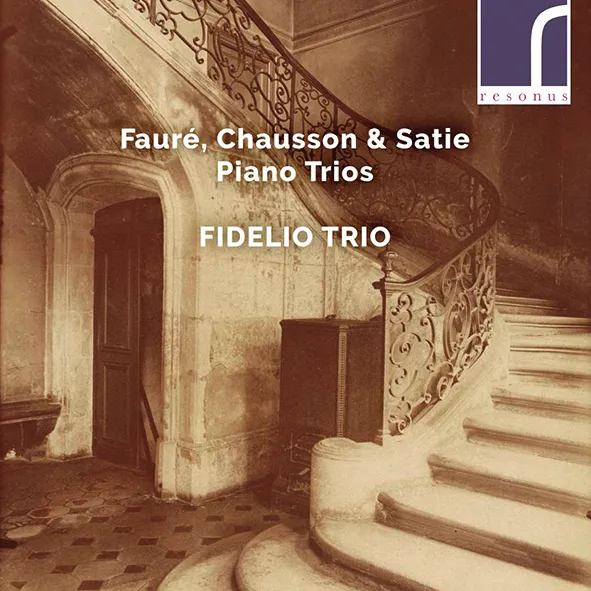
Chausson • Fauré • Satie Chausson: Piano Trio in G minor; Fauré: Piano Trio in D minor; Satie: (arr. John White): Messe des Pauvres – VIII, Prière pour le salut de mon âme; Le Piège de Méduse Fidelio Trio Resonus RES10232 57.01 mins
Chausson’s Piano Trio of 1881 dates from the years when he was having lessons from César Franck. The medium is notorious among composers for presenting problems of balance, especially the tendency of the strings to be swamped by the piano. Franck’s own Piano Quintet of the previous year largely solves the problem by having four stringed instruments, but Chausson, with only two, does succumb rather often to the medium’s inherent danger, not least because his piano texture is Franckish in its fullness and complexity. The piano here also has an especially resonant bass. This is a pity, since the playing is accurate and stylish, embracing the grand manner, even if the melodic material of this Op. 3 is less than memorable.
Fauré, writing at the very end of his long life, understood the textural problems and his Trio is a wonderful example of less being more. I would have liked more careful shaping of his idiosyncratic phrases which at times are made to sound almost routine – which they’re not – and I do miss any sense of fun in the final Allegro vivo. Fauré may have been old and profoundly deaf, but after the first performance of the work in 1923 his friends were asking, ‘If he lives to be a hundred, how far will he go?’, such was the impact of the Trio’s vigorous inner life and curious harmonies. John White’s straightforward Satie arrangements give us two contrasting sides of his music: the hieratic and the jokey.
Roger Nichols